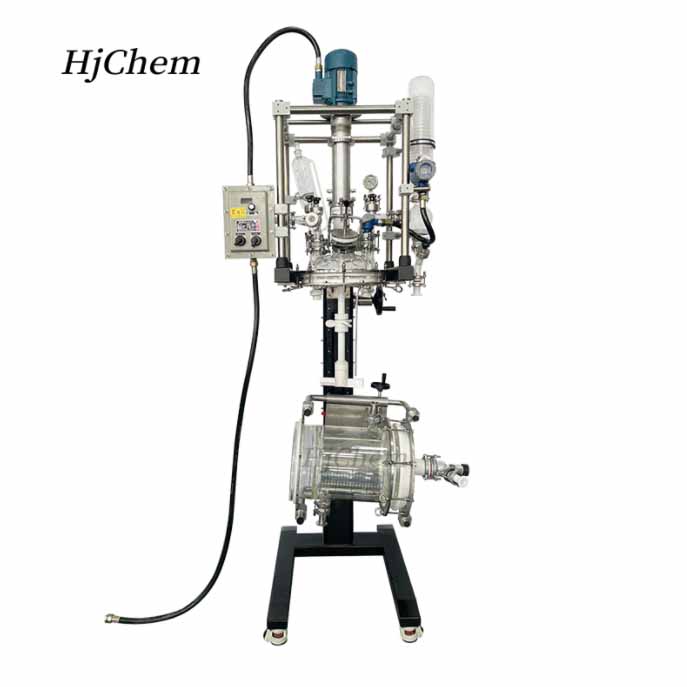A solid phase peptide synthesis equipment is a specialized apparatus used to perform the chemical reactions required in SPPS.
It can efficiently mix the resin with reagents, facilitate the coupling of amino acids, and execute deprotection steps.
Basic Technical Specifications:
1. Volume: 1L, 2L, 3L, 5L, 10L, 20L, 30L, 50L, 100L, for the small laboratory scale to pilot plant kilo-lab scale.
2. Vessel: Single wall, double wall or triple wall available
3. Working pressure: Full vacuum to 0.05/0.1Mpa
4. Working temperature: -80°C ~ +220°C
5. Wetted parts: Borosilicate glass 3.3, PTFE
6. Filter device: PTFE, glass or stainless-steel, pore size 0.1um to 200um
Glass nutsche filter reactors are used for filtration as well as for solid phase peptide synthesis (SPPS). As solid phase reactors, they can be equipped for facilitating the synthesis cycles.
SPPS reactor can realize the process requirements of peptide efficient mixing, synthetic cracking, washing, solid-liquid filtration etc.
What is Solid Phase Peptide Synthesis ?
Solid phase peptide synthesis (SPPS) is a technique for peptide synthesis. It can be defined as a process in which a peptide anchored by its C-terminus to an insoluble polymer is assembled by the successive addition of the protected amino acids constituting its sequence.
The “classical” reactor for SPPS merely consists of a cylindrical vessel with a fritted disc and a removable lid equipped with a mechanical stirrer. The resin may also be stirred by bubbling nitrogen through, however more elaborate equipment is required. For rapid small scale synthesis a small fritted glass funnel is sufficient. Oxygen and moisture need not be strictly excluded, but the cleavage of the Nα protecting group should be performed under a hood as to avoid exposure to piperidine (Fmoc cleavage) or TFA (Boc cleavage).
For more information, please visit our website:
Solid Phase Peptide Synthesis Machine
https://njhjchem.com/product/glass-nutsche-filters/solid-phase-peptide-synthesis-equipment/
bio-equip.cn




